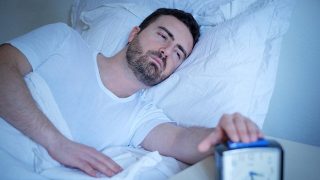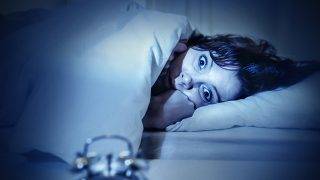Sleep is one of the greatest gifts you can give to your body’s battery. The more you understand biology, the easier it becomes to see how important sleep actually is for pretty much every organ inside the body. There’s a good reason why doctors recommend their ill patients to get as much rest as possible. But while sleep is a natural thing, it doesn’t always come naturally. That’s where melatonin supplements can step in: to increase the production of the hormone that literally puts you to sleep.
How Melatonin Works
Your brain has a pineal gland, which is responsible for the secretion of melatonin. This is a hormone whose levels rise and fall depending on the amount of light you are exposed to. In the evening, the pineal gland secretes more melatonin, allowing your brain to send signals to your body, preparing it for sleep. As the hours of morning approach, your melatonin levels decrease, causing you to slowly awake.
Melatonin is very similar to a natural sedative of your body. It’s water soluble and lipid, so that it may easily pass through the cell membranes.
Melatonin & the Sleep-Wake Cycle
Every person’s body has an internal 24-hour clock, which is governed by a circadian rhythm. Throughout this 24-hour timeframe, the body and mind pass through a series of changes, on a mental, physical, and behavioral level.

What Are Melatonin Supplements?

This happens because the effects of melatonin supplements are still being studied, so there isn’t a full understanding on the notions of too much melatonin, how the body really works when taking melatonin supplements, or if these products are good for children.
Truth is that most melatonin supplement studies so far have examined only the short-term effects that these pills have on the body, without studying the long-term implications. Because of that, a lot of doctors are reluctant in telling their patients to take melatonin supplements. Also, there isn’t any specific data on the optimal melatonin dosage.
Why Take Melatonin Supplements?
There are certain eventful periods when, for one reason or another, your sleep-wake cycle experiences a disruption, thus causing you to either, or have to fall asleep at irregular hours. Such examples are:
- When you’re traveling long-distance to a different time-zone, your body has to adjust to another sleeping schedule. This can be particularly troublesome, especially for those who are used to falling asleep at the same hours and waking up at a specific time the next day. This phenomenon is known as jet lag, and with the help of melatonin supplements, you can successfully adjust your new sleeping schedule.
- People who have to work night shifts will find it harder to sleep as much as they have to for a number of reasons. First off, some people have a working schedule that combines both day and night shifts. This means that they will sometimes have to rest during the day, and other times, at night. This makes it very difficult for their bodies to adjust its circadian rhythm. Second, people who work night shift have to fall asleep during the day. That means lots of natural light, plus the daily background noise that we’re all exposed to. Melatonin supplements can help these people fall asleep despite the fact that their environment is causing low melatonin secretion.
- Some people may need to take melatonin supplements because they have delayed sleep-wake phase disorder. In common terms, these people are known as “night owls”, and function better during the night. This condition includes people who suffer from insomnia, are sleepy throughout the entire day, consume a lot of caffeine past noon, or can’t fall asleep sooner than a minimum of two hours past bedtime. With melatonin supplements, this category of people can induce sleep earlier in the evening, thus helping them regulate their sleep-wake cycle.
- There are times when people are overwhelmed with certain aspects of their life, causing them to feel stressed and anxious. When you’re unable to relax and your mind keeps wandering off towards all sorts of problems, you find it difficult to fall asleep. Melatonin supplements can kick in to boost your melatonin levels, causing you to feel uncontrollably sleepy.
Long story short: melatonin supplements can help you fall asleep faster, and maintain sleep for longer. While it may seem unimportant, sleep is what actually fuels the body both on the short and long term. When you don’t get enough sleep, almost every organ in your body has to suffer, as sleep deprivation negatively impacts how the body functions:
- Lack of sleep compromises the immune system. When you’re resting, your immune system continuously works to help fight bacteria and viruses, which would otherwise cause disease and infections. If you’ve ever had to deal with a virus yourself, you know that one of the main doctor’s recommendations is to get plenty of rest. That’s because sleep is what fuels your immune system to do its job.
- Your digestive system will also suffer if you don’t get enough sleep. Pushing your body to stay awake for longer than it has to increases hunger, thus causing you to eat more than the average food intake that your body requires. Consequently, sleep deprivation can lead to obesity.
- Sleep deprivation causes your blood pressure to rise. When this happens, you are at greater risk of heart disease.
- Not getting enough sleep also has an impact on your love life, as your sex drive decreases. Men deprived of their sleep will experience a decrease in their testosterone levels.
- Those who don’t have a regular sleeping pattern will also be affected on a psychological level. When you’re feeling tired, not only are you less able to concentrate and suffer short-term memory loss, but you are also moody. People who are often in a bad mood witness how their social life suffers, as you become less patient with the others around you, and could potentially rupture some of your relationships.
Are Melatonin Supplements Truly Efficient?
A lot of people can vouch for the effectiveness of taking melatonin supplements. However, one must remember that people respond differently to melatonin, as they do with other types of medication as well.
Despite the fact that there isn’t enough scientific evidence to help doctors in giving precise melatonin-related advice, there are quite a number of studies that have looked into the different aspects and potential effects that melatonin supplements have on the body.
To get the best out of melatonin supplements, there are some basic rules and tips to keep in mind next time you want to induce sleep:
- With melatonin supplements, timing is very important. If you want to go to bed at just the right time, you have to take them 30 minutes to one hour before you want to doze off. On average, that’s about the amount of time it takes for the sleepiness to kick in. If you take melatonin during the day, you can expect a lot of tiredness and the urge to sleep.
- Speaking of timing, never take melatonin supplements if you’re just looking for a quick afternoon nap. Melatonin supplements were designed to give you a full night’s sleep, and if you don’t have about six to eight hours to allow the body to eliminate the melatonin intake, you will wake up feeling more tired than you were before sleeping.
- Melatonin is best taken in smaller doses, until you find just how much melatonin you need to sleep through the night. You can start with a low dose, even something as low as 0.3 mg. If that doesn’t cut it for you, feel free to gradually increase the melatonin for sleep dosage. It may take some experimenting, but it’s way better than just gobbling up a huge dose of it.
Melatonin Supplement and Sleep Apnea
The FDA has labeled melatonin as a supplement that can be given to people without the need for a medical prescription. However, since this is not regulated by the FDA, the packaging of melatonin supplements doesn’t provide enough information on strength and dosage.
Natural sleep melatonin supplements are often the go-to solution for people who suffer from sleep disorders. Some common examples of disorders that people use melatonin supplement sleep aids for are:
- Insomnia is, by far, the most common sleeping disorders. Studies have revealed that the average time it takes for a person to fall asleep after taking melatonin supplements decreases with about 13 minutes. You can take melatonin supplements to solve short-term insomnia. Long-term insomnia generally has psychological causes, and that’s something that melatonin supplements cannot resolve since you can’t take them forever.
- ADHD-induced insomnia is something specific to children who have an attention-span deficit, and can’t concentrate on anything for very long. While doctors are generally reluctant in giving children melatonin supplements, ADHD insomnia is generally an exception.
- People who take beta-blockers are more likely to have their natural melatonin production inhibited. Doctors may choose to prescribe melatonin supplements to help people raise their melatonin levels.
- Advanced sleep-wake phase disorder is something that people who sleep early and wake up even earlier experience. On average, people that have this sleep disorder will fall asleep at a maximum 9 p.m. and then wake up at hours like 2 or 3 a.m., being unable to fall asleep again. Needless to say, those who suffer from this sleeping disorder will find it difficult to stay awake until it’s bedtime again, thus disrupting their sleep-wake cycle even further, and will also experience fatigue during the day. Melatonin supplements may help these people sleep for way longer, thus preventing them from waking up in the middle of the night.
- Irregular sleep-wake rhythm disorder is often seen in people who don’t have a predictable sleeping pattern. It’s considered a rare neurological condition which is defined by an irregular circadian rhythm. These people go get enough sleep (about eight to nine hours and overage per day), but they don’t sleep within the same hours every day. By taking melatonin supplements, people who have irregular sleep-wake rhythm disorder can regulate their biorhythms, forcing a sleep pattern that will eventually occur naturally.
Melatonin Supplements in Children & Elders
If you’ve ever experienced sleeping problems and rushed down to the nearest pharmacy for some melatonin supplements, you should avoid doing the same thing for your children. Giving melatonin supplements to children is a very complex issue and ones that require medical consultation beforehand.
There are cases where studies have shown that melatonin supplements can help children with neurological disorders fall asleep faster. Children who have ADHD might benefit from these supplements, but also kids who have autism. Studies have shown that kids that suffer from a neurological condition will sleep 48 minutes longer, and fall asleep about 29 minutes faster if they take melatonin supplements.
Even so, parents should keep in mind that there are many factors that can inhibit melatonin secretion in children, such as exposure to blue light before bed. the most important takeaway is to consult with a pediatrician before giving your child any kind of supplements.


While there are a number of different sleep aids for older people who suffer from disrupted sleep-wake cycles, melatonin supplements are considered to be the safest, because they have little to no side effects.
You may want to read: Best Melatonin Supplement That’s Safe for Children
Natural Ways to Boost Melatonin Levels
There is no doubt that melatonin supplements are efficient in a lot of different scenarios. However, taking melatonin supplements isn’t the key to a long-term healthy sleeping pattern. At some point, you will have to stop taking them and find natural ways of pushing your body to naturally secrete more melatonin.
When a person’s sleeping schedule is messed up, it often seems like there’s nothing they can do to fall asleep when they’re supposed to. There are actually a lot of tips and tricks that can help a person’s pineal gland secrete more melatonin:
- Since it’s scientifically proven that melatonin levels are very dependent on light, you can work with light to raise and decrease them. When waking up, expose yourself to some natural daylight. This will help regulate your circadian rhythm and is particularly useful if you wake up feeling really sleepy.
- Naturally, exposing yourself to as little light as possible before bedtime is also important. Whether you’re dealing with natural or artificial light, your melatonin levels will continue to stay low if you force them. Using artificial light signals your brain that it’s not sleep-time yet, which means that the pineal gland will not release the required amount of melatonin to sleep.
- Speaking of light, blue and LED lights are your worst enemy. The more you tend to watch TV, sit in front of the computer/laptop, check your emails or a Facebook account on your smartphone in the evening, the less likely you are to fall asleep faster.
Did you know that the things you eat can increase or decrease your melatonin production levels?
- Caffeine-based products are a wonder in the morning, and there are lots of people who will tell you they simply cannot function without that first cup of coffee as soon as they wake up/get to the office. However, drinking caffeine past noon is a bad idea, particularly if you are the kind the person whose body takes a very long time to completely eliminate caffeine from its system. The recommended daily caffeine intake is a maximum of 200 mg, which is about two cups of coffee. Caffeine decreases melatonin production, meaning that it inhibits the pineal gland from releasing this hormone when it’s supposed to.
- Drinking one glass of alcohol per day can relax you and make you sleepy. Drinking too much alcohol, on the other hand, will make it harder for you to fall asleep, and will also decrease the quality of your sleep. You will find yourself constantly waking up to go to the bathroom, and could experience nausea and dizziness, both bringing a state of discomfort that prevents your body from resting as it should.
- There are certain foods that can increase your natural melatonin production. Some great examples are tomatoes, goji berries, walnuts, or tart cherries.
- People with low melatonin levels should also consider consuming more calcium-based products. Anything from cheese to kale or broccoli might help. Milk is particularly rich in melatonin, and drinking a warm glass of milk before going to bed will not only relieve you of some evening-munchies but will also boost your melatonin levels.
- Tryptophan-rich foods will also help, as this is an amino-acid that leads to melatonin production. If you consume foods that have this amino-acid, you can naturally push your body to create more melatonin. Some examples of tryptophan-rich foods are chicken, turkey, pumpkin seeds, peanuts, yogurt, and garbanzo beans.
Exercising and sleep hygiene are also important if you want to fall asleep faster:
- Taking a warm bath before bed goes a long way in helping you relax and feel clean. If you’ve ever tried to go to bed being all sticky and dirty, you know how much discomfort it can cause, thus making it harder on you to fall asleep. It could also cause you to toss and turn all night, decreasing the quality of your rest.
- Exercising in the evening is a good idea. Exercising too much can decrease your melatonin levels because your body is not getting ready for sleep. If you want, you can have a mild jogging session in the evening, but make sure you do so about three hours before going to bed. It makes your body feel tired and prepares it for a good night’s rest.
- Having a snack in bed at the end of the day might sound like a good idea, but there are two things that can go wrong here. You don’t want any snack crumbs on your sheets, and trying to sleep on a full-stomach might actually backfire. Instead, try munching on some of those melatonin-rich foods we talked about earlier.
Conclusion
Melatonin is a hormone with a very clear role and one that people need to sleep. Without proper melatonin levels, there are dozens of things that can go wrong, as sleep deprivation affects the proper functioning of all your bodily systems and organs.
Where the pineal gland fails, melatonin supplements can step in, helping people with sleeping disorders and irregular sleep patterns make sense out of a chaotic sleeping schedule. However, the impact that melatonin supplements have on the body is still up for debate, as there is a lack of long-term evidence to help support more frequent doctor recommendations for these supplements.
Because of that, there are countries in the world where you can only get melatonin supplements with a medical prescription, and doctors will always be wary of recommending a particular type of drug if they don’t have enough medical data to support its efficiency. Even so, melatonin supplements success stories just keep on coming.














